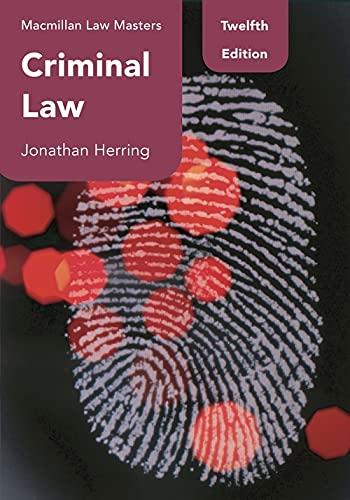Question
Overview: This week, we began a focused exploration of the existential threat currently posed by the climate crisis. As discussed by your readings and learning
Overview:
This week, we began a focused exploration of the existential threat currently posed by the climate crisis. As discussed by your readings and learning materials, the climate crisis is not only a scientific or ecological issue; it is an economic, political, cultural, technological, and, perhaps above all, ethical issue. Exploration of the climate crisis reveals the complex connections among all dimensions of globalization. In this discussion, you are invited to reflect on the global scope of the climate crisis, and to consider how the phenomenon of globalization, as it is currently occurring, offers both opportunities for collective global action, at the same time that it erects barriers to successfully addressing this calamity.
Questions posed:
For this discussion, I want you to explore the debate around the carbon tax here in Canada:
- Before conducting any research, describe what you think the carbon tax is. You don't necessarily have to produce the "right" answer.
- Find a reputable online source that defines the carbon tax and quote their definition. Does this definition match your pre-conceived understanding of the tax? Why or why not?
- Readthis editorial from the Globe and Mail. What is being proposed here? Do you agree with the editors?
- How does the debate around the carbon tax fit within the broader discussion of the global climate crisis in this course?
Two posts:
Your original post should consist of,at minimum, 8 - 10 long, elaborate, and thought-provoking sentences. Your original post should contain everything that is being asked of you in these instructions. I strongly encourage you to use subtitles to separate your content as this will make your answers more organized. Incorporate theoretical and empirical details drawn fromreadingsandlearning materialsfrom this week and beyond to support your ideas. The readings for this week are as follows:
| Steger, M.B. (2017). "Chapter 6: The Ecological Dimension of Globalization." InGlobalization: A Very Short Introduction(4th ed.) (pp. 92-108). Oxford: OUP. Stern, N. (2009).The global deal: climate change and the creation of a new era of progress and prosperity. New York: Public Affairs (excerpts). |
You can use outside sources if you want (it is not a requirement), but you must first use the course materials, and the outside sources can only be scholarly books or peer-reviewed journal articles drawn from the Humber Libraries website:https://library.humber.ca/. Do not use any other sources. Finally, please make sure that you use APA to reference all of the sources you use. For a guide as to how to use APA, please click here:https://library.humber.ca/APA-MLA. Don't forget to have both in-text and end-of-text citations. Here is the template:
| IN-TEXT CITATION: (Last Name, Year of Publication, Page Number) END-OF-TEXT CITATION (BOOK): Author's Last Name, First Name as Initial. (Date Published).Title of Source. Location of Publisher: Publisher. Retrieved from URL. |
Step by Step Solution
There are 3 Steps involved in it
Step: 1

Get Instant Access to Expert-Tailored Solutions
See step-by-step solutions with expert insights and AI powered tools for academic success
Step: 2

Step: 3

Ace Your Homework with AI
Get the answers you need in no time with our AI-driven, step-by-step assistance
Get Started


